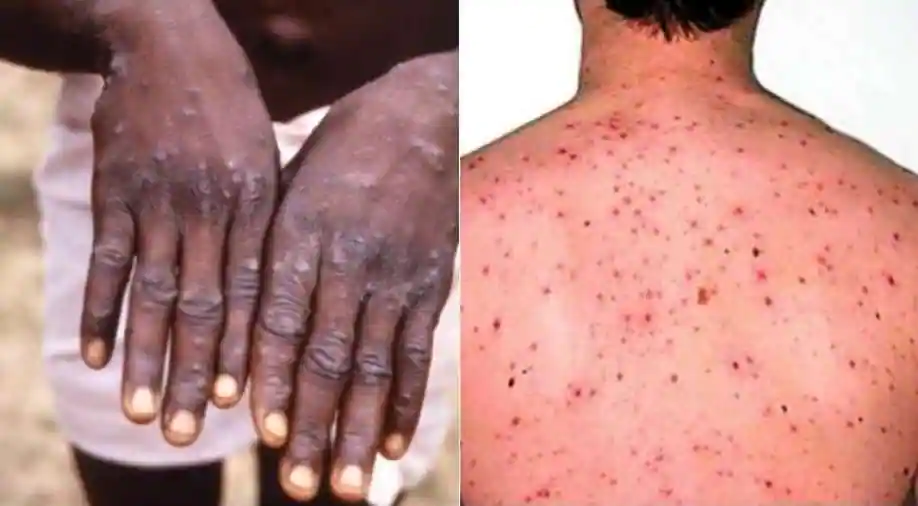As a medical doctor in Nigeria, you get used to being called by family, friends and foes when a health need arises. Already hotwired to respond, we often forget to ask for consultation fees when they are saying thank you and ending the call. It is one thing to receive calls on headaches, common colds, fever and diarrhoea-like diseases, and a whole other thing to be called by 2am on Sunday morning to come and take a delivery on the next street to your house. Yes, 2am.
Obviously, this woman was in labour since before 6pm that evening but did not go to the general hospital where she is registered. Why? Because her husband, a security officer at a hospital, heard that there are now patients with monkey pox in the hospital’s isolation ward. In other words, the hospital is no longer safe.
As I handed over the baby at 3:23am to the paediatrician on call at the same hospital, which miraculously had a free out-born patients’ incubator at the time, I thought of taking the husband aside for some good scolding. But resisted the urge to. Instead, I have settled for writing this Op ed to educate Nigerians about such decisions. After which, I will buy a copy of this paper and give it to Mr. John.
As humans, we are programmed to often look out for our health and wellbeing and that is fine. However, half knowledge, they say, is more dangerous than none. It is important to know that one can harm themselves while trying to prevent harm.
- Tinubu will transmit whistleblowing policy to National Assembly soon –Edun
- NAHCON Needs systemic reform – Presidency
During the COVID-19 pandemic, a lot of people died from self-prescribing both orthodox, traditional and concocted medications. In fact, people bathed with bleach, salt and consumed chemicals which killed them before the virus got to their communities. These were not suicidal people, but just victims of incomplete knowledge. In this case, knowledge of their health. On the other hand, they could have relied on the information passed on by the ministries of health and health promoters and most likely would have still been alive today.
As a mild detour, as was the provocation behind this article; Monkeypox is a zoonotic disease. That is, a disease gotten from interactions of humans with animals, or better put, crossed from animals to humans. Historically, it is common around the central and western African regions, but with recent outbreaks and mutations it has gathered more global concerns. And on August 14, 2024, the Director General of the World Health Organisation declared it a Public Health Emergency of International Concern.
At the moment, Burundi, Cameroon, the Central African Republic, the Democratic Republic of the Congo, Ghana, Ivory Coast, Kenya, Liberia, Mozambique, Pakistan, the Philippines, the Republic of Congo, Rwanda, South Africa, Sweden, Thailand, Uganda and Nigeria have reported cases of monkey pox in this current outbreak.
Spread can be via animal-to-human and human-to-human transmission. Generally, through respiratory secretions, skin to skin contact with infected persons or animals and even contaminated objects. And not by being in the same hospital as an infected person! Nonetheless, if you should feel generally unwell and you know you have been exposed to a sick person in the past three weeks or less, it is crucial that you go to a health facility near you and volunteer a good medical history. Especially if you start noticing any new rashes growing and/or spreading on you.
Now, away from the detour. The baby who was delivered at home will be diagnosed as, a term neonate delivered at home, at risk of sepsis. Sepsis is a medical way of saying blood infection. This in itself has killed more people than monkey pox. Hence, the woman’s actions were highly risky. Possible complications that could commonly arise in labour can seldom be adequately managed at home. We should stop playing demi-gods with our lives and lives of others.
Hence, a crucial call to action is being made to machineries of health education in the states, communities and villages. Health education is not a one-way communication chat. It is important that feedback of understanding or clarification is gotten. Health education should and does not stop at verbal interactions, but also behavioural patterns. The television media should also take out time to make health educating advertisements, and not just paid promotions on healthy toothpastes and paracetamol generics. Hospitals should ustilise wall monitors showing health-educating motion pictures. Primary health centres can use colourful health stickers printed in the language that the communities speak. The Ministry of Health should utilise stakeholders to bring about routine, timely and updated health education in the country.
In conclusion, Monkeypox remains a significant public health concern due to its potential for widespread transmission and the severity of its symptoms. Continued research and surveillance are still ongoing to better understand the disease and develop effective prevention and treatment strategies. Nonetheless, basic health information on the progress of this work needs to constantly be communicated to the people in a way they understand. Including special needs and differently abled people. Health information when not properly understood can do more damage than the pathology being prevented/controlled.
Thank you.
Dr Otobo is a Global Surgery Fellow, Operation Smile Inc.

 Join Daily Trust WhatsApp Community For Quick Access To News and Happenings Around You.
Join Daily Trust WhatsApp Community For Quick Access To News and Happenings Around You.


